Chimpanzee
- January 18, 2024
- 0 comment
Chimpanzees, our closest living relatives in the animal kingdom, are truly remarkable creatures that have captivated the world with their fascinating traits and behaviors. Found primarily in the lush rainforests and woodlands of tropical Africa, these intelligent beings are known for their remarkable cognitive abilities, intricate social structures, and striking similarities to humans, sharing about 98% of our DNA. Chimpanzees are omnivores with a diverse diet that includes fruits, leaves, insects, and even occasional hunting.
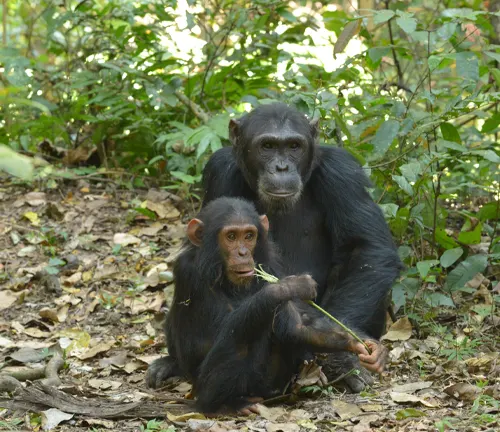
They are renowned for their tool-making skills, using sticks, rocks, and leaves to solve problems and extract food. Within their communities, chimpanzees exhibit complex social dynamics, living in groups led by a dominant male and engaging in grooming, sharing, and cooperation. Sadly, these incredible creatures face numerous threats, including habitat loss, poaching, and disease. As a result, they are classified as endangered species, emphasizing the urgent need for conservation efforts to protect their natural habitats and ensure their survival. Studying chimpanzees not only provides insights into our evolutionary history but also underscores the importance of preserving these magnificent beings and the delicate ecosystems they inhabit.
| Characteristic | Description |
|---|---|
| Scientific Name | Pan troglodytes |
| Habitat | Tropical rainforests and woodlands of Africa |
| Diet | Omnivorous, including fruits, leaves, insects, and occasional hunting |
| Social Structure | Highly social, living in communities led by a dominant male |
| Communication | Complex, using vocalizations, facial expressions, and body language |
| Tool Use | Proficient tool users, employing sticks, rocks, and leaves for various tasks |
| DNA Similarity | Approximately 98% similarity to human DNA |
| Conservation Status | Endangered due to habitat loss, poaching, and disease |
| Lifespan (Wild) | Around 40 to 50 years |
| Significance | Valuable for understanding human evolution and indicator species for ecosystem health |
The Fascinating World of Chimpanzees
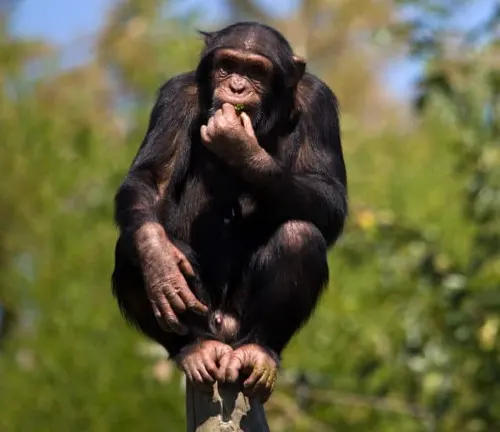
Chimpanzees, our closest living relatives in the animal kingdom, have long captured the imagination of researchers and wildlife enthusiasts alike. In this article, we will delve into the intriguing world of these incredible primates, exploring their behavior, habitat, and importance in understanding human evolution. Join us as we embark on a journey through the lives of chimpanzees, shedding light on their remarkable characteristics and the critical role they play in our ecosystem.
Chimpanzee Habitat and Range
Chimpanzees are adaptable creatures, inhabiting a variety of environments within their respective ranges. Let’s explore where you can find these remarkable primates.

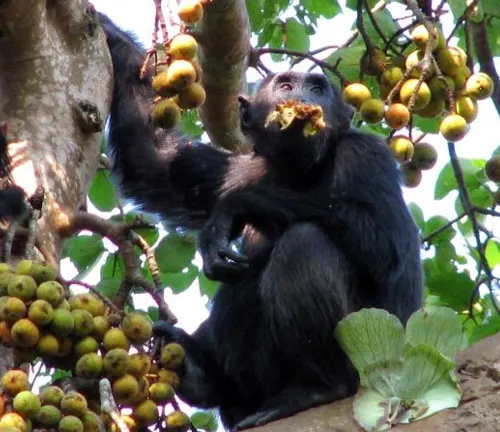
Forest Dwellers
Chimpanzees are predominantly forest dwellers. They thrive in both rainforests and savannah woodlands, showcasing their ability to adapt to different ecosystems.
Chimpanzee Behavior
The behavior of chimpanzees is both captivating and complex. It offers valuable insights into our own evolutionary history and the intricate social structures within their communities.
Social Structure
Chimpanzees live in communities led by a dominant male, often referred to as the alpha male. These communities consist of females, their offspring, and subordinate males.
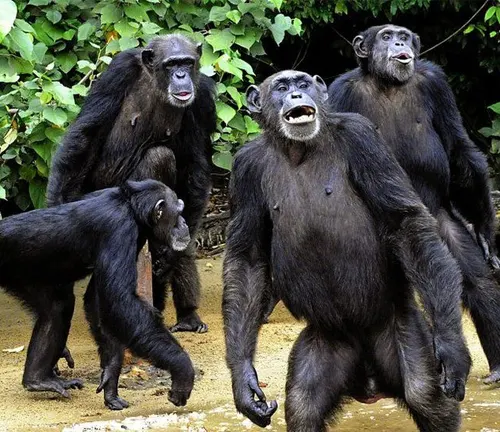
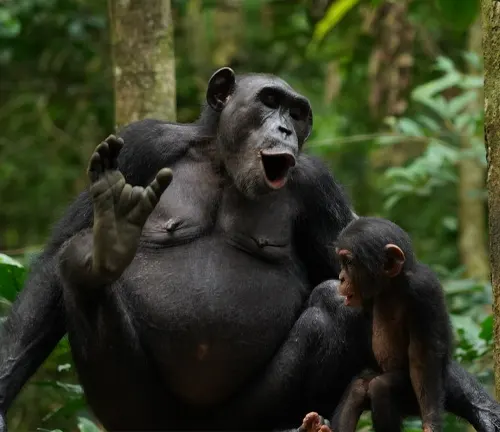
Communication
Chimpanzees communicate using a combination of vocalizations, facial expressions, and body language. Their communication is intricate, allowing them to convey various emotions and intentions.
Chimpanzee Intelligence
Chimpanzees are renowned for their high level of intelligence. Their cognitive abilities have been a subject of extensive research, revealing astonishing capabilities.
Tool Use
Chimpanzees are skilled tool users. They use sticks to extract termites from mounds, rocks to crack open nuts, and leaves as sponges for drinking water.
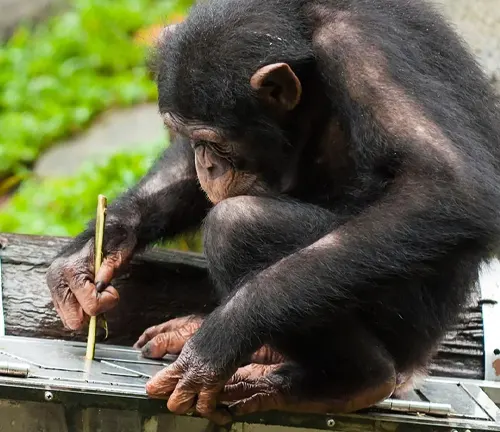

Problem-Solving Skills
Research has shown that chimpanzees possess excellent problem-solving skills. They can navigate complex puzzles and adapt to new situations.
Conservation Challenges
Despite their remarkable traits, chimpanzees face numerous challenges that threaten their survival. Understanding these challenges is crucial for their conservation.
Habitat Loss
Deforestation and human encroachment are causing the loss of chimpanzee habitats, leading to population decline.

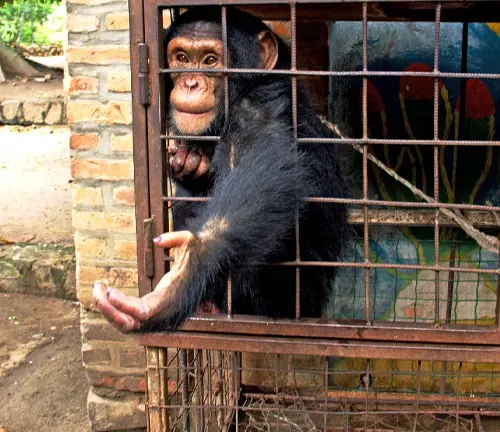
Poaching
Chimpanzees are hunted for their meat and captured for the illegal pet trade, further endangering their populations.
The Significance of Chimpanzees
Chimpanzees hold immense importance in the world of science and conservation, serving as vital indicators of the health of our ecosystems.
Indicator Species
Chimpanzees are considered indicator species, meaning their well-being reflects the overall health of their habitat.
Insights into Human Evolution
Studying chimpanzees provides insights into our own evolutionary history. Comparing their behaviors and genetics to ours helps us understand our shared ancestry.
Different Species
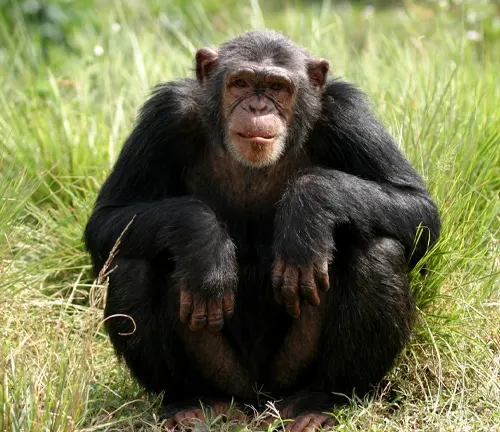
Common Chimpanzee
(Pan troglodytes)
Common chimpanzees are found in West and Central Africa. They are known for their robust nature and diverse behaviors. This species is further divided into several subspecies, including the Western chimpanzee (Pan troglodytes verus), the Nigeria-Cameroon chimpanzee (Pan troglodytes ellioti), the Central chimpanzee (Pan troglodytes troglodytes), and the Eastern chimpanzee (Pan troglodytes schweinfurthii). Each subspecies has its own distinct characteristics and range.
Bonobo
(Pan paniscus)
Bonobos are found in the dense forests of the Democratic Republic of Congo. They are a distinct species from the common chimpanzee and are known for their unique social structure and relatively peaceful behavior. Bonobos are often referred to as the “pygmy chimpanzee” due to their smaller size compared to common chimpanzees.
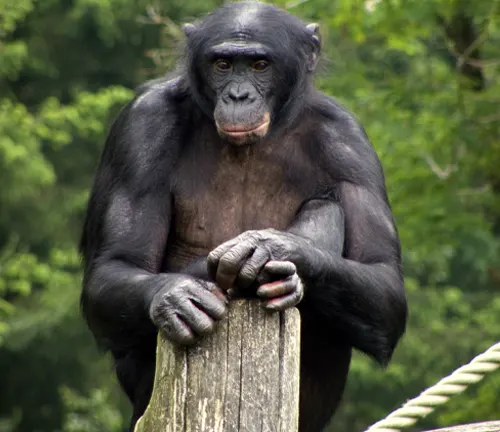
Frequently Asked Question (FAQs)
- What is a chimpanzee?
A chimpanzee is a species of great ape and one of the closest living relatives to humans. They belong to the genus Pan and are known for their high intelligence, complex social behavior, and physical similarities to humans. - Where are chimpanzees found in the wild?
Chimpanzees are found in the wild primarily in the rainforests and woodlands of tropical and subtropical regions in Africa. They are native to West and Central Africa. - How are chimpanzees different from other primates?
Chimpanzees are different from other primates due to their unique combination of characteristics, including their ability to use tools, complex social structures, and high cognitive abilities. They also share about 98% of their DNA with humans, making them our closest relatives. - Are chimpanzees endangered?
Yes, both Common Chimpanzees and Bonobos are considered endangered species due to habitat loss, poaching, and other threats to their populations. - What is the lifespan of a chimpanzee in the wild?
In the wild, chimpanzees typically have a lifespan of about 40 to 50 years, although some individuals may live longer. - What do chimpanzees eat?
Chimpanzees are omnivores and have a varied diet. They primarily eat fruits, leaves, insects, and occasionally hunt small mammals and use tools to extract termites and ants from mounds. - Do chimpanzees use tools?
Yes, chimpanzees are known for their tool-using abilities. They use sticks, rocks, and leaves as tools for various purposes, including foraging for food and social interactions. - How do chimpanzees communicate?
Chimpanzees communicate through a combination of vocalizations, facial expressions, body language, and gestures. Their communication is complex and helps convey emotions, intentions, and information within their groups. - Are chimpanzees social animals?
Yes, chimpanzees are highly social animals. They live in communities led by a dominant male and engage in complex social interactions, including grooming, sharing food, and forming alliances. - What is the role of the alpha male in a chimpanzee community?
The alpha male in a chimpanzee community is typically the dominant male and plays a leadership role. They are responsible for maintaining order within the group, protecting the territory, and often have priority access to resources and mating opportunities. - How similar is chimpanzee DNA to human DNA?
Chimpanzees share approximately 98% of their DNA with humans, making them one of our closest genetic relatives. - Do chimpanzees have a hierarchy within their groups?
Yes, chimpanzee communities have a hierarchical social structure. The alpha male holds the highest rank, followed by other males and females, with a clear dominance hierarchy. - What are the major threats to chimpanzee populations?
The major threats to chimpanzee populations include habitat loss due to deforestation, illegal wildlife trade, poaching for bushmeat, and diseases transmitted from humans. - How do researchers study chimpanzees in the wild?
Researchers study chimpanzees in the wild through methods such as observation, field research, camera traps, and genetic analysis. They aim to understand their behavior, ecology, and conservation needs. - Can chimpanzees be kept as pets?
Keeping chimpanzees as pets is illegal and highly discouraged due to ethical concerns, potential danger to humans, and the negative impact on chimpanzees’ well-being. - Do chimpanzees exhibit altruistic behavior?
Yes, chimpanzees have been observed exhibiting altruistic behaviors, such as sharing food and providing comfort to group members in distress. These behaviors contribute to their complex social dynamics. - What is the conservation status of chimpanzees in different regions?
The conservation status of chimpanzees varies by region, with some populations facing higher levels of threat than others. Generally, both Common Chimpanzees and Bonobos are considered endangered or critically endangered. - What is the significance of studying chimpanzees for understanding human evolution?
Studying chimpanzees provides insights into our own evolutionary history. Comparing their behaviors, genetics, and social structures to ours helps scientists better understand our shared ancestry and the development of human traits. - Are there any famous chimpanzees in history?
Yes, there have been famous chimpanzees in history, including “Washoe,” the first chimpanzee to learn sign language, and “Jane Goodall’s” research subject “David Greybeard,” who contributed significantly to our understanding of chimpanzee behavior. - How can I contribute to chimpanzee conservation efforts?
You can contribute to chimpanzee conservation efforts by supporting reputable conservation organizations, raising awareness about the threats they face, advocating for stronger wildlife protection laws, and donating to projects aimed at preserving chimpanzee habitats and populations.









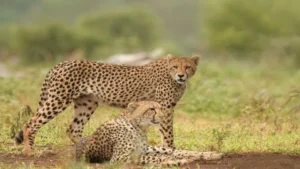
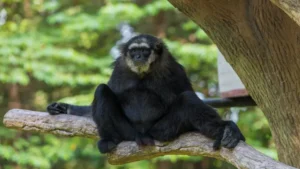



Leave your comment